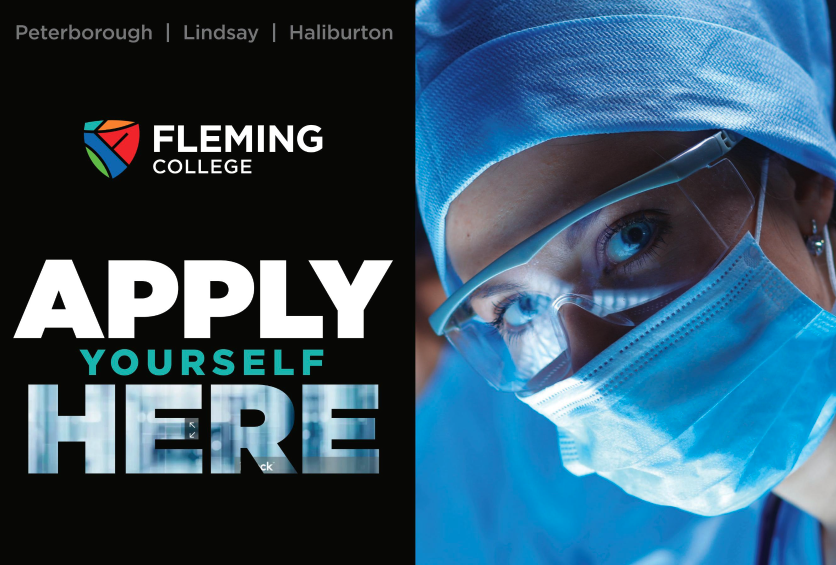Ontario attracts investment from global companies because of the talented and skilled graduates of its post-secondary institutions. Finding and keeping the right talent is the biggest challenge for today’s employers in a time of upheaval, transition and labour shortages in many sectors.
Each of the province’s 24 colleges and 22 universities provide a continuous pipeline of skilled workers, partnering with employers to create innovative ways to prepare students for the jobs of today and tomorrow and to help current workers adapt to changing technology.
“Input from employers plays a pivotal role throughout all of Durham College’s program development activities,” said Debbie Johnston, Dean of the Centre for Professional and Part-time Learning at Durham College in Oshawa.
Frequent labour market scans allow the college to identify and analyze emerging employment trends and opportunities. As well, Durham College gets input on ideas for new certificates, diplomas, graduate certificates and degrees from its more than 100 program advisory committees, which are made up of industry leaders.
“The close working relationships that Durham College has with hundreds of businesses play a critical role in ensuring we address real needs – both now and for the future.”
Mohawk College in Hamilton has established partnerships with more than 2,000 employers and industry stakeholders, said James Vanderveken, Dean, Centre for Community Partnerships and Experiential Learning.
Mohawk has made a significant commitment to implementing a demand-led education model, involving employers in all stages of the education process, says Vanderveken.
“This approach has proven successful over the past several years, providing students with the most relevant skills they need to pursue their chosen fields of work and providing employers with a potential workforce that has been trained with employer input to ensure suitability for the regional work environment. Often, the demand-led model of training creates a pathway directly from education to employment.”
Mohawk has embarked on an ambitious five-year workforce-recovery initiative called Challenge 2025 that commits intensified resources to address poverty, under-education, labour shortages, unemployment and underemployment in the Greater Hamilton Area. Employers, social service agencies, and the college are working together to provide training, family support, work placements and an opportunity for employment to people on social assistance.
A material handling program through City School by Mohawk provides participants with six weeks of instruction, a two-week paid work placement, and wraparound supports such as childcare, work safety equipment, and referrals to support services such as legal clinics, housing, and health care.
Similar projects have focused on programs for pharmacy assistants, early childhood education assistants and personal support workers.
Challenge 2025 initiatives also include a pilot project in the supply chain sector that is training 144 people, including recipients of Ontario Works, newcomers and youth. Another project is engaging other colleges across Canada in delivering targeted training courses.
Ontario’s universities are also leading innovative partnerships, including Ryerson University, which along with the Ontario Chamber of Commerce, founded Magnet Hub to harnesss jobmatching technology that addresses unemployment and underemployment. It brings together 30 postsecondary institutions, 13,000 employers, 250 community partners and more than 90,000 job seekers.
The Executive Master’s in Technology Management program at Wilfrid Laurier University develops digital literacy, innovation management and design thinking skills for business leaders in order to drive innovation and technology adoption.
Universities have also developed deep sector-specific collaborations, including Lakehead University’s new Centre for Advanced Science and Engineering Studies works with businesses on sustainable resources development and prepare students for jobs in the mining sector.
The University of Windsor’s Clean Combustion Engine Laboratory (CCEL) is where the university and Ford Canada are working together to train the next generation of auto workers.
Aerospace giants Bombardier, Pratt & Whitney Canada, Honeywell and Safran are investing in a collaboration between Ryerson University, the University of Toronto, York University and local colleges to transform Toronto’s Downsview Park into an aerospace hub, advance the industry and train the next generation of aerospace workers.
The Centre for Research in Occupational Safety and Health (CROSH) at Laurentian University has a one-of-a-kind mobile lab dedicated to the prevention of occupational illness and industry through research into fatigue mitigation, mobile equipment accident prevention, vibrationinduced injury prevention, heat stress prevention, and sleep hygiene.
Universities are also helping prepare workers at all stages of their careers in advanced manufacturing to work with emerging technologies such as artificial intelligence, 3D printing, and robotics.
A great example is the Continuous Studies office at Ontario Tech University, which offers short programs that allow manufacturing workers to develop transferable skills while working. The university is also developing short master’s certificates to assist managers to move from one sector to another.
Another great example of a partnership in action is between the Toronto Transit Commission (TTC) and the School of Transportation at Centennial College, which offers programs in automotive, truck and coach, heavy duty equipment and aviation.
“The aging workforce and growth in urban transit are exacerbating an existing technician shortage,” said Dean Alan McClelland. Centennial College is doubling the number of apprentices in TTC program, which better prepares truck and coach apprentices for novel technologies that are found on buses. These include advanced climate controls, hybrid-electric drive systems, battery-electric drive systems and communication networks.
“There are several trades with such a shortage of skilled people that merely letting apprentices go for their in-school training leaves their workplaces shortstaffed,” said McClelland. So, to prevent disruption to their employer, Centennial now offers a part-time option where apprentices can attend class on Saturdays and complete one level each academic year.
The trades included in this option are autobody and collision damage technician, truck and coach technician and truck trailer technician.
Colleges and universities are also rolling out a suite of micro-credentials – rapid training programs to help workers upgrade their skills to succeed in their current careers or find new employment.
Micro-credentials are short in duration, may be completed online, and can be designed for the specific needs of employers and jobs.
At Fanshawe College in London, for instance, micro-credentials are responding to emerging demands in business, information technology, media, technology, trades and education.
As well, Humber College’s Advanced Manufacturing Micro-Credentials Program offers laid-off workers and job seekers seven new micro-credentials that prepare them for employment in
advanced manufacturing.











